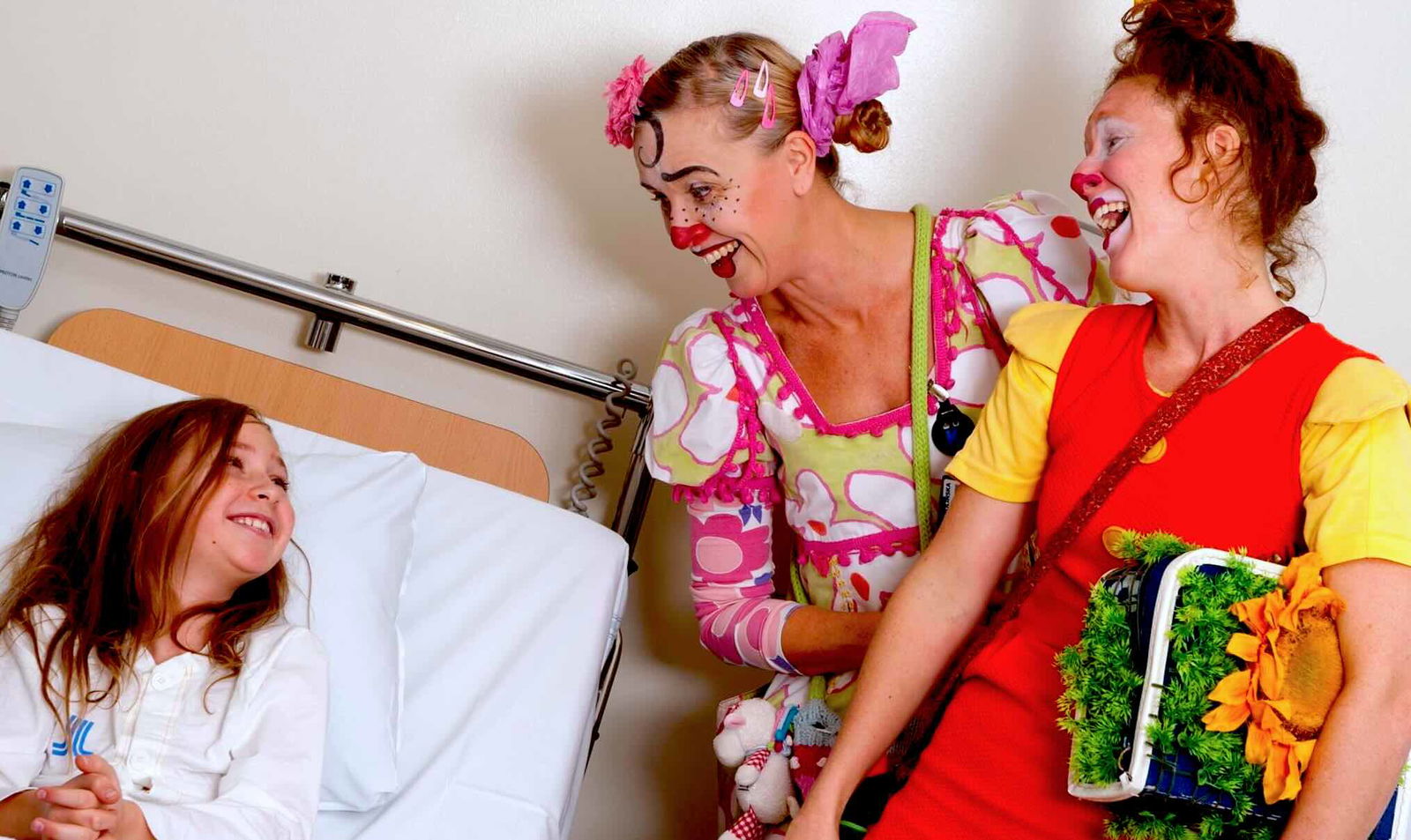A recent study presented at the European Respiratory Society (ERS) Congress in Vienna found that medical clowns can significantly reduce the length of hospital stays for children with pneumonia while shortening the duration of IV antibiotic treatments.
“Medical clowns undergo specific training to work in hospitals,” Dr Karin Yaacoby-Bianu at the Israel Institute of Technology said in a recent statement. “They have been shown to reduce pain and alleviate stress and anxiety in children and their families during medical treatment, and have been gradually integrated into many aspects of hospital care. But their impact on children being treated for pneumonia has not yet been investigated.”
The Long History of Medical Clowns
While clowns are known for being creepy and offputting, medical clowns have a long history of sharing joy with hospital patients worldwide. The film Patch Adams, starring Robin Williams, is the most well-known portrayal of a medical clown. They’re specially trained performers who work in healthcare settings to help reduce stress, anxiety, and pain in patients, particularly children.
“The clown welcomes the child and makes him feel important,” explained Dr. Nessia Lang-Franco of the Baruch Padeh Medical Center in a separate article. “When he enters the examination room, he feels stronger and more confident. He’s not so afraid.”
Unlike traditional clowns, medical clowns undergo specific training to work in hospital environments and understand how to engage with patients sensitively and therapeutically. Their role is to provide emotional support and improve the overall well-being of patients and their families during highly stressful medical treatments and procedures.
Medical clowns use humor, music, and playful interaction to distract patients from the clinical atmosphere, which can alleviate fear and anxiety, making them more comfortable during their stay. Many clowns use their history of pantomiming and theatre to evoke joy in hospital patients, with known success.
Medical clowns have been shown to improve medical outcomes. Studies indicate that laughter and humor can have physiological effects, such as lowering heart and respiratory rates, reducing stress hormones, and boosting immune responses. Medical clowns also help patients engage more positively with treatment plans, including medication adherence and cooperation during procedures. As a result, medical clowns have become increasingly integrated into pediatric care, palliative care, and even adult wards in hospitals worldwide, playing an important role in promoting holistic healing alongside traditional medical interventions.
Clowns in Action
Pneumonia is a leading cause of hospitalization in children worldwide, with various factors influencing how long a child stays in the hospital, such as vital signs, the need for intravenous antibiotics, and the development of complications.
To explore whether medical clowns could aid in faster recovery, Dr. Yaacoby-Bianu and her team studied 51 children aged 2 to 18, hospitalized with pneumonia. Half of the children received standard care, while the other half received standard care plus a 15-minute visit from a medical clown twice daily during the first 48 hours of their hospitalization.
The results were pretty compelling: children who interacted with medical clowns had an average hospital stay of 43.5 hours, compared to 70 hours for the control group. The clown-visited children also needed intravenous antibiotics for only two days, while those in the control group required them for three days. Researchers also observed significant improvements in the clown group’s respiratory rate, heart rate, and inflammatory markers.
“While the practice of medical clowning is not a standardized interaction, we believe it helps to alleviate stress and anxiety, improve psychological adjustment to the hospital environment, and allow patients to better participate in treatment plans like adherence to oral antibiotics and fluids,” said Dr. Yaacoby-Bianu in a recent statement. “This, in turn, helps the children to recuperate faster.”
Dr. Stefan Unger, Chair of the ERS Group on Paediatric Respiratory Infection and Immunology, emphasized the significance of these findings by stating: “This study highlights the positive effect that humor can have in healthcare settings and demonstrates the potential of non-pharmacological interventions to influence clinical outcomes. Adding medical clowns to a multidisciplinary care team for children with pneumonia may reduce physical and emotional stress, lower healthcare costs, and ease some of the burden on healthcare systems.”
Kenna Hughes-Castleberry is the Science Communicator at JILA (a world-leading physics research institute) and a science writer at The Debrief. Follow and connect with her on X or contact her via email at kenna@thedebrief.org

